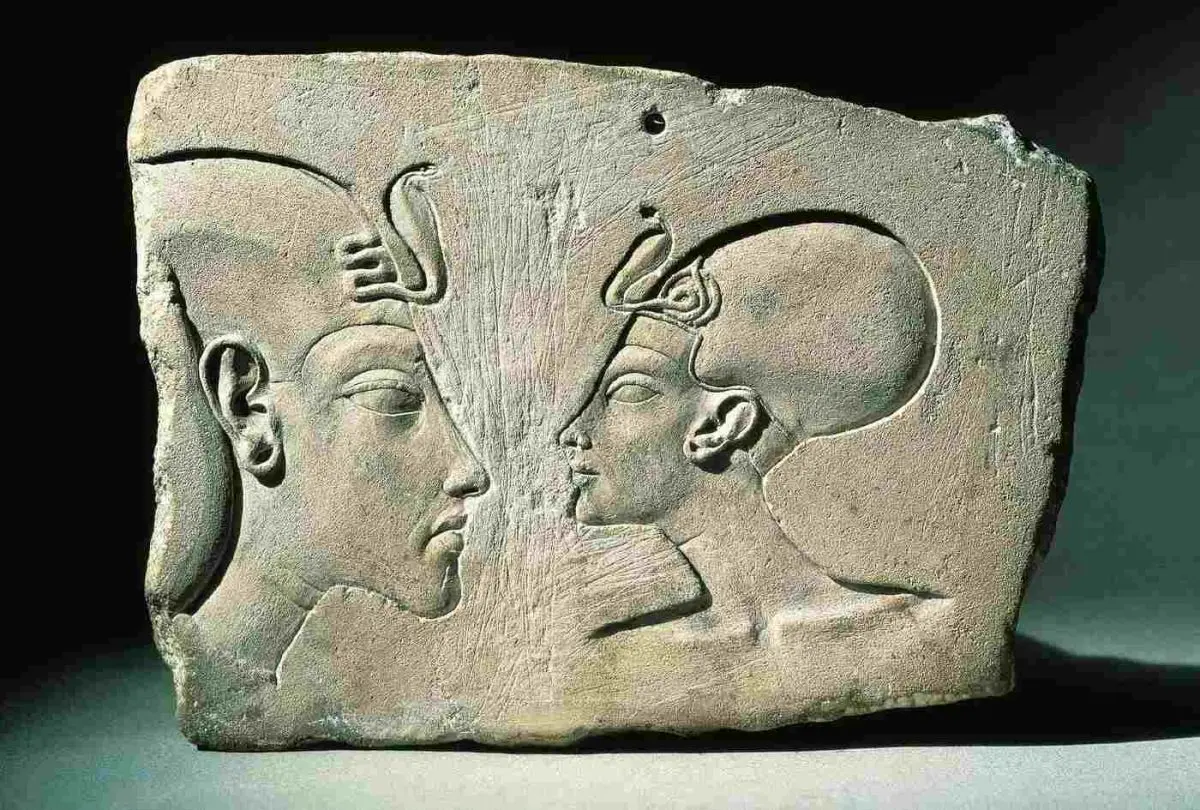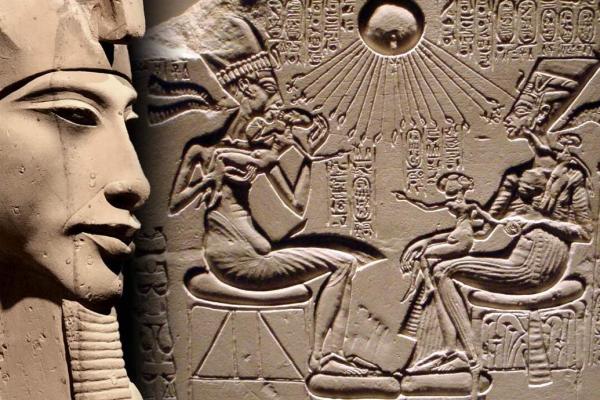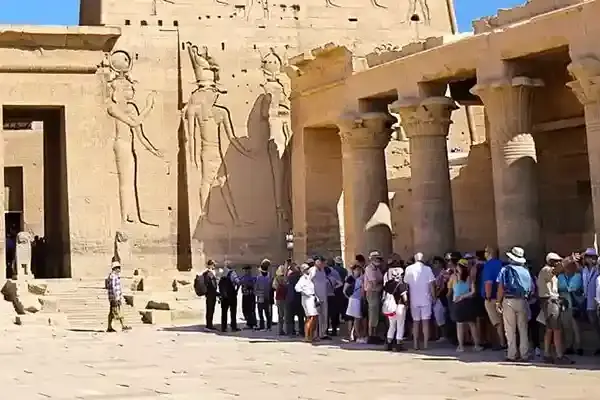Table of contents [Show]
Akhenaten: The King Who Stole Egypt's Religion
Akhenaten's Early Life
Akhenaten was born in the city of Akhetaten in the year 1353 BCE, during the reign of his father, Amenhotep III. He was the son of Amenhotep III and his Great Royal Wife Tiye whose statues are found in the Egyptian Museum the must-see attraction in all Egypt classic tours . Amenhotep III and Tiye already had two daughters, Sitamun and Isis, when Akhenaten was born. He also had a younger sister, Beketaten, and a brother, Tutankhamun. They left alot of achievements and sights that we visit today in Egypt tours .
The early years of Akhenaten are not extensively known. He most likely had a princely education while growing up at his father's palace in Akhetaten. There are several temples and sites in Akhetaten city, now known as Minya province, on the east bank of the Nile River that you may include in your Egypt travel packages . In addition to learning about Egyptian religious customs and beliefs, Akhenaten would have received training in military strategy and diplomacy. He would have accompanied his father on official trips to other regions of Egypt and to other countries in his capacity as crown prince.
In Year 12 of Amenhotep III's reign, Akhenaten married his half-sister Nefertiti. The couple had six daughters: Meritaten, Meketaten, Ankhesenpaaten (later known as Queen Nefertiti), Neferneferuaten Tasherit, Neferneferure, and Setepenre. Listen to his history from our experts through the best organized Egypt luxury tours to more historical places.
There were indications that Akhenaten was beginning to reject conventional Egyptian religious beliefs and practices in favor of a new religion based on worship about Year 15 of Amenhotep III's rule.

Akhenaten's Death and Legacy
No specific cause of death has been identified for Akhenaten, whose passing is shrouded in mystery. While some historians speculate that he was assassinated, others think he may have passed away naturally. Whatever the reason for it, his passing signaled the end of the Amarna Period and the restoration to the ancient Egyptian religion. His tomb was discovered in Amarna, and our Egypt budget tours can help you be ready to see it.
The legacy of Akhenaten is intricate. He was a divisive character in his own time, and discussions over his rule continue to this day. Others consider him as a heretic who ruined Egypt's religious traditions, while others see him as a visionary leader who was ahead of his time. Regardless of one's viewpoint, there is no doubting that Akhenaten was a fascinating historical character and that the effects of his reign may still be felt today.

Why Akhenaten is Important
Akhenaten was an Egyptian king who is best known for his attempt to radically change his country's religion. He did this by worshipping a single god, Aten, instead of the traditional Egyptian pantheon of gods. This earned him the nickname "the heretic king." While his reign was short-lived and ended in controversy, Akhenaten's impact on Egypt was significant. You can contact us to schedule your Egypt day tours to learn more about his history through his attractions in Al Amarna.
First and foremost, Akhenaten is important because he was one of the first kings to attempt to centrally regulate religion. Prior to Akhenaten's reign, each city in Egypt had its own patron god or goddess that it worshipped. Akhenaten attempted to unify the country under one god, Aten. This centralization of religion would eventually be replicated by other rulers, including the Persian king Darius I and the Roman emperor Constantine I. During Luxor day tours you will visit more than temples, each of them embodies the tale of a different deity in different time periods. Not only Luxor that holds temples, discover other religious temples during your Aswan day tours .
A further reason Akhenaten is important is that he was one of the first historically monotheistic kings. His monotheism was unsuccessful in the end, but it laid the path for other monotheistic faiths like Judaism, Christianity, and Islam. The art of Egypt under Akhenaten also saw a change from the typical stylized representations of gods and pharaohs to a more realistic approach. This aesthetic development would have a long-lasting effect on Egyptian art.

How Akhenaten Changed Egypt's Religion
When Akhenaten came to the throne in 1353 BCE, he instituted a series of sweeping changes to Egyptian religion. Perhaps the most radical change was his abandonment of the traditional pantheon of gods in favor of a single god, Aten. Akhenaten declared Aten to be the one true god and the only god worthy of worship. He built a new capital, Akhetaten (modern El-Amarna), in honor of Aten and oversaw the construction of massive temples dedicated to the sun-disk god. You don’t need to just visit Al Amarna to see his statues, if you are in Cairo, visit the Egyptian Museum as it holds more than 120,000 items of monuments and statues for kings including King Akhenaten. It’s a visit that must be on your Cairo day tours list.
The clergy and people of Egypt, who held fast to their traditional beliefs, were vehemently opposed to Akhenaten's religious changes. Egypt returned to its original faith after his death because to the political and theological unrest that plagued his rule. In spite of this, Judaism and Christianity, as well as other subsequent religions, were greatly influenced by Akhenaten's brief experiment with monotheism.
The narrative of Akhenaten is one that continues to fascinate us even today. He was a fascinating person in Egyptian history. He made a brave choice that ultimately brought to his demise when he decided to alter Egypt's religion. Yet it is certain that Akhenaten was a guy who firmly believed in what he was accomplishing, and he left behind a legacy that continues to amaze us.
Popular Categories
Popular Posts

Top Alexandria Beaches You Must Visit 2026

What are the important holidays in Egypt?









